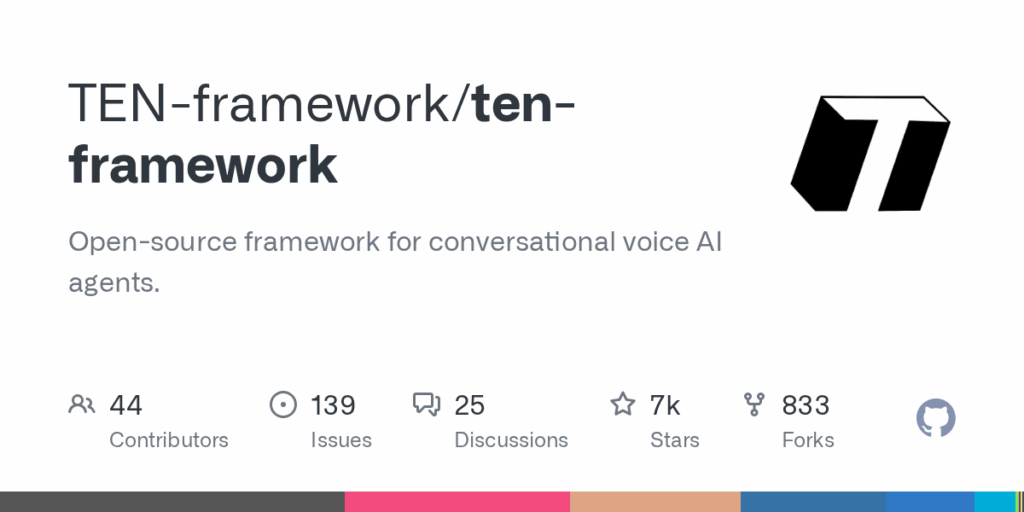ten framework
Basic Information
TEN-framework is an open-source ecosystem and codebase for creating, customizing, testing, and deploying real-time multimodal conversational AI agents. The repository provides a complete agent showcase and developer tooling including TEN Agent, TMAN Designer (a low/no-code workflow UI), TEN VAD, TEN Turn Detection, StoryTeller image generation, and a portal for documentation. It targets real-time interactions with voice, vision, avatars and screenshare detection and documents integration points for ASR, TTS, LLMs and MCP servers. The README includes setup instructions, examples, a playground, environment and dependency guidance, and deployment options such as Docker and GitHub Codespaces. The project bundles example agents, extension modules, and guides for hardware integration to run on devices like ESP32-S3, enabling developers to iterate locally and prepare services for release builds.








